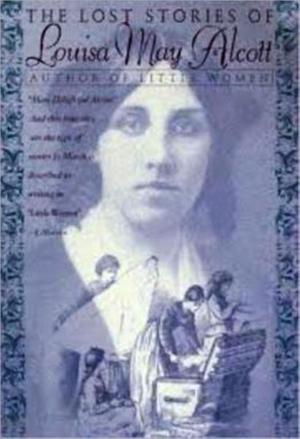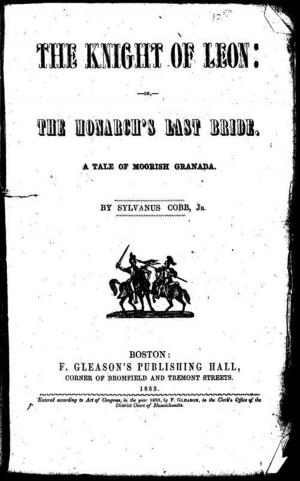| Author: | Bess Streeter Aldrich | ISBN: | 1230000139610 |
| Publisher: | WDS Publishing | Publication: | June 6, 2013 |
| Imprint: | Language: | English |
| Author: | Bess Streeter Aldrich |
| ISBN: | 1230000139610 |
| Publisher: | WDS Publishing |
| Publication: | June 6, 2013 |
| Imprint: | |
| Language: | English |
When the editor of Christian Herald asked me to write the story behind the story of "A Lantern in Her Hand," it seemed an easy assignment. Here at my desk several weeks later the task does not look so simple. For the roots of a writer's work in creating characters often go deep into the garden soil of his own life. So the article must contain something of my childhood, for it was then that I began, all unconsciously, to gather material for this book.
The child of middle-aged parents, I was the last of a family of eight, born after they had moved from their Iowa farm into the college town of Cedar Falls, so I was not a farm child and never knew at first hand any of the experiences in the story. There was a great deal of talk and laughter in that childhood home, for many relatives were always coming and going, uncles and aunts who had been sturdy pioneers there on the Cedar River when the state was new.
My grandfather, Zimri Streeter, had arrived in Blackhawk County with his big family in 1852, when there was no railroad west of the Mississippi and the crossing of the river was made by ferry boat. He built a sturdy log cabin, sheltered his neighbors during an Indian scare or two, and turned the virgin sod. Dipping into the politics of the new county, he was elected to the first legislature after the capital was moved from its territorial status in Iowa City to the little new Des Moines. Because of his dry wit he was called "the wag of the House," and undoubtedly he was a reactionary, for there is an old letter still in existence which says he believes he "did more settin' on unwise measures than anybody in the House."
A dozen years later, at the time of the second Lincoln election, he was appointed by Governor Kirkwood to go down into Georgia and bring back the Iowa soldiers' votes. He was sixty-four years old then, and when he got back to Atlanta he found the city burning, all communication to the north severed, and he had to march along with Sherman to the sea. There is a story to the effect that in all the hardships he had to undergo, sometimes foraging for food from the fields, his only complaint when he got back was that he had lost his hat.
All these tales of hardy old Zimri floated around my childish ears whenever his rather garrulous clan got together.
Mother's family came to the county two years later than father's people. At eighteen she drove one of the teams all the way out from Illinois. Sometimes she would recall the scenes of that trip: the ferrying across the Mississippi, the horses and oxen plunging up and down the bridgeless creekbeds, the tipping over of one of the wagons with the eight precious sacks of flour slipping into the water and the feather pillows floating down stream like so many geese, while the younger children chased after them with hilarious laughter. She would tell the happenings merrily as though there had been no hardships at all. The camping on the edge of the woods, the sounds of the night winds, the odors of the prairie grass--all these she pictured so clearly that I could almost see and hear and smell them myself.
So the pictures she drew for me verbally became a part of my knowledge, even though they had happened so many years before I was born. And with no possible foresight on my part of how they were to be used one day in stories, they seemed to belong in my own memories.
When the editor of Christian Herald asked me to write the story behind the story of "A Lantern in Her Hand," it seemed an easy assignment. Here at my desk several weeks later the task does not look so simple. For the roots of a writer's work in creating characters often go deep into the garden soil of his own life. So the article must contain something of my childhood, for it was then that I began, all unconsciously, to gather material for this book.
The child of middle-aged parents, I was the last of a family of eight, born after they had moved from their Iowa farm into the college town of Cedar Falls, so I was not a farm child and never knew at first hand any of the experiences in the story. There was a great deal of talk and laughter in that childhood home, for many relatives were always coming and going, uncles and aunts who had been sturdy pioneers there on the Cedar River when the state was new.
My grandfather, Zimri Streeter, had arrived in Blackhawk County with his big family in 1852, when there was no railroad west of the Mississippi and the crossing of the river was made by ferry boat. He built a sturdy log cabin, sheltered his neighbors during an Indian scare or two, and turned the virgin sod. Dipping into the politics of the new county, he was elected to the first legislature after the capital was moved from its territorial status in Iowa City to the little new Des Moines. Because of his dry wit he was called "the wag of the House," and undoubtedly he was a reactionary, for there is an old letter still in existence which says he believes he "did more settin' on unwise measures than anybody in the House."
A dozen years later, at the time of the second Lincoln election, he was appointed by Governor Kirkwood to go down into Georgia and bring back the Iowa soldiers' votes. He was sixty-four years old then, and when he got back to Atlanta he found the city burning, all communication to the north severed, and he had to march along with Sherman to the sea. There is a story to the effect that in all the hardships he had to undergo, sometimes foraging for food from the fields, his only complaint when he got back was that he had lost his hat.
All these tales of hardy old Zimri floated around my childish ears whenever his rather garrulous clan got together.
Mother's family came to the county two years later than father's people. At eighteen she drove one of the teams all the way out from Illinois. Sometimes she would recall the scenes of that trip: the ferrying across the Mississippi, the horses and oxen plunging up and down the bridgeless creekbeds, the tipping over of one of the wagons with the eight precious sacks of flour slipping into the water and the feather pillows floating down stream like so many geese, while the younger children chased after them with hilarious laughter. She would tell the happenings merrily as though there had been no hardships at all. The camping on the edge of the woods, the sounds of the night winds, the odors of the prairie grass--all these she pictured so clearly that I could almost see and hear and smell them myself.
So the pictures she drew for me verbally became a part of my knowledge, even though they had happened so many years before I was born. And with no possible foresight on my part of how they were to be used one day in stories, they seemed to belong in my own memories.















